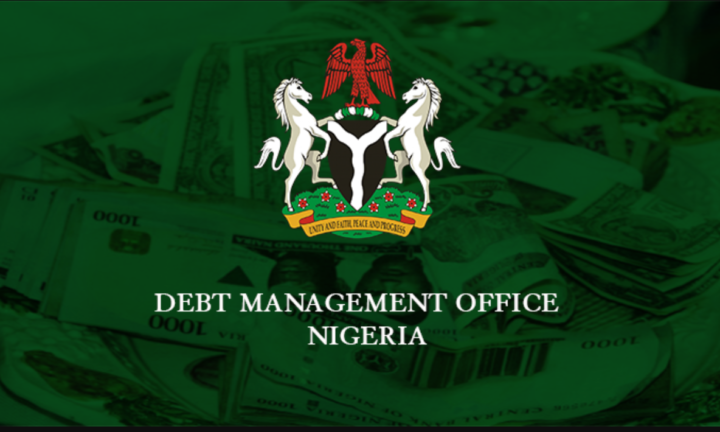The Federal Government of Nigeria has listed new bonds worth ₦200 billion on the Nigerian Exchange (NGX) for the month of September, reinforcing its commitment to raising capital through the domestic debt market while providing investors with secure, long-term instruments. The move is part of the government’s wider debt management strategy aimed at stabilizing public finances, bridging budget deficits, and deepening the capital market.
The fresh listings comprise multiple tenors under the Federal Government of Nigeria (FGN) bonds program, with maturities stretching up to 10 and 30 years. According to the Debt Management Office (DMO), the bonds carry coupon rates that reflect prevailing yields in the secondary market and are structured to appeal to both institutional and retail investors. The September issuance follows a consistent trend of monthly offerings, a practice that has allowed the DMO to steadily mobilize funds for government projects.

The NGX confirmed that the listings have been admitted to its daily official list, making them tradable in the secondary market. This provides an avenue for investors to buy and sell the bonds after the primary issuance, ensuring liquidity and wider participation. Analysts say this feature has made FGN bonds a key anchor in Nigeria’s financial market, often viewed as benchmarks for pricing other fixed-income securities.
For the Federal Government, the bond program remains central to financing its fiscal operations. With the 2024/2025 budget heavily reliant on borrowing to plug revenue shortfalls, bond issuance has provided a dependable lifeline. The proceeds from the September listing, like others before it, will be channeled toward funding infrastructure projects, social investments, and debt refinancing. The government has maintained that such borrowing is essential to support growth, especially as it works to improve non-oil revenues and stabilize foreign exchange inflows.
Market observers note that the September bond listing also comes at a time of heightened volatility in Nigeria’s macroeconomic space. Inflation remains above 30 percent, while exchange rate pressures have persisted despite reforms. For investors, however, government bonds continue to offer safety, relatively attractive yields, and sovereign backing. In recent months, pension fund administrators, insurance firms, and asset managers have maintained a strong appetite for these instruments, balancing their portfolios between equities and fixed-income assets.
The listing also reflects the DMO’s strategy of enhancing transparency and accessibility in the domestic debt market. By consistently bringing new issues to the NGX and FMDQ platforms, the government ensures that investors across different categories—ranging from large institutions to retail savers—can participate. In recent years, the DMO has also pushed the “FGN Savings Bond” program to draw in small investors, promoting financial inclusion and boosting household participation in capital market instruments.
Analysts describe the latest ₦200 billion issuance as another signal of the government’s dependence on local borrowing, especially given the difficulty of accessing external credit markets. International lenders have tightened conditions due to Nigeria’s credit rating challenges, while global interest rates remain relatively high. Domestic markets, therefore, offer a more predictable and sustainable option, even if they crowd out private sector borrowers.
The NGX has welcomed the government’s consistency in bond listings, stressing that they help deepen the exchange’s offerings, boost market capitalization, and enhance investor confidence. Officials noted that the capital market plays a crucial role in economic development by channeling funds to government and corporate entities, and bond programs like these remain vital for sustaining liquidity and activity.
Despite the positives, concerns linger about Nigeria’s rising debt profile. Public debt has crossed ₦100 trillion, raising fears about sustainability. Critics argue that while borrowing to fund development is justifiable, the government must ensure that debt is matched with productive investments that stimulate growth and generate returns. Without such alignment, future generations could face a heavy repayment burden.
Still, the consistent appetite for government bonds suggests investor trust in the sovereign’s repayment capacity. Nigeria has never defaulted on its domestic debt obligations, and this track record has kept interest in FGN bonds strong despite fiscal pressures. Yields have adjusted to reflect inflation and risk premiums, but demand has remained resilient.
The September issuance is expected to further consolidate the role of government securities as a safe haven in the market. For institutional investors, the bonds provide long-term instruments for liability matching, particularly in the pension and insurance sectors. For retail investors, they offer a secure entry point into the capital market with steady income.
Looking ahead, analysts predict that the government will sustain its monthly issuance program, with more listings expected before the end of the year. The consistency ensures that the domestic market remains active and liquid while helping the government to gradually meet its financing needs. The challenge, however, remains balancing borrowing with fiscal reforms, revenue mobilization, and expenditure efficiency.
In the short term, the ₦200 billion bond listing is expected to lift overall market activity, attracting both new inflows and secondary trading interest. For the broader economy, the availability of long-dated securities contributes to financial system stability, supports monetary policy operations, and enhances the yield curve for corporate issuers.
Ultimately, the latest bond listing underscores the central role of Nigeria’s domestic capital market in sustaining government financing. While concerns about debt sustainability persist, the instruments remain critical for bridging funding gaps, stabilizing investor confidence, and keeping the economy on a growth path. As investors weigh risks and opportunities, the September issuance demonstrates once again that government bonds remain the cornerstone of Nigeria’s financial ecosystem.
Support InfoStride News' Credible Journalism: Only credible journalism can guarantee a fair, accountable and transparent society, including democracy and government. It involves a lot of efforts and money. We need your support. Click here to Donate
